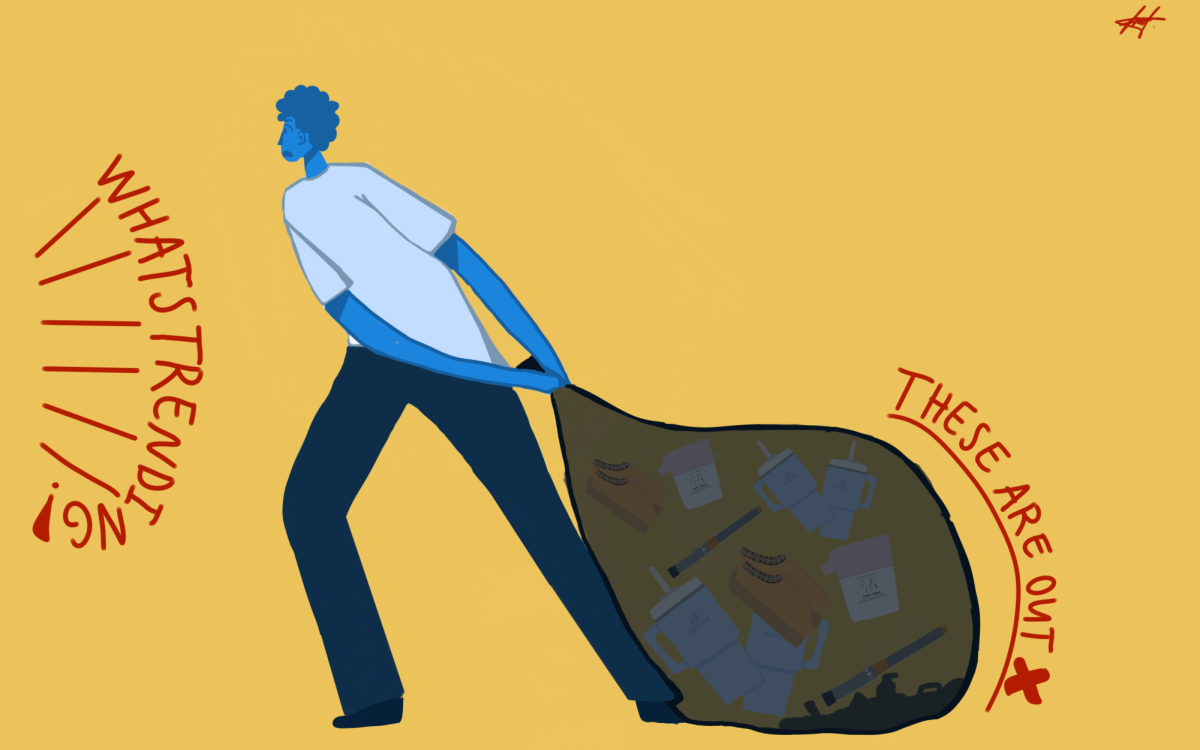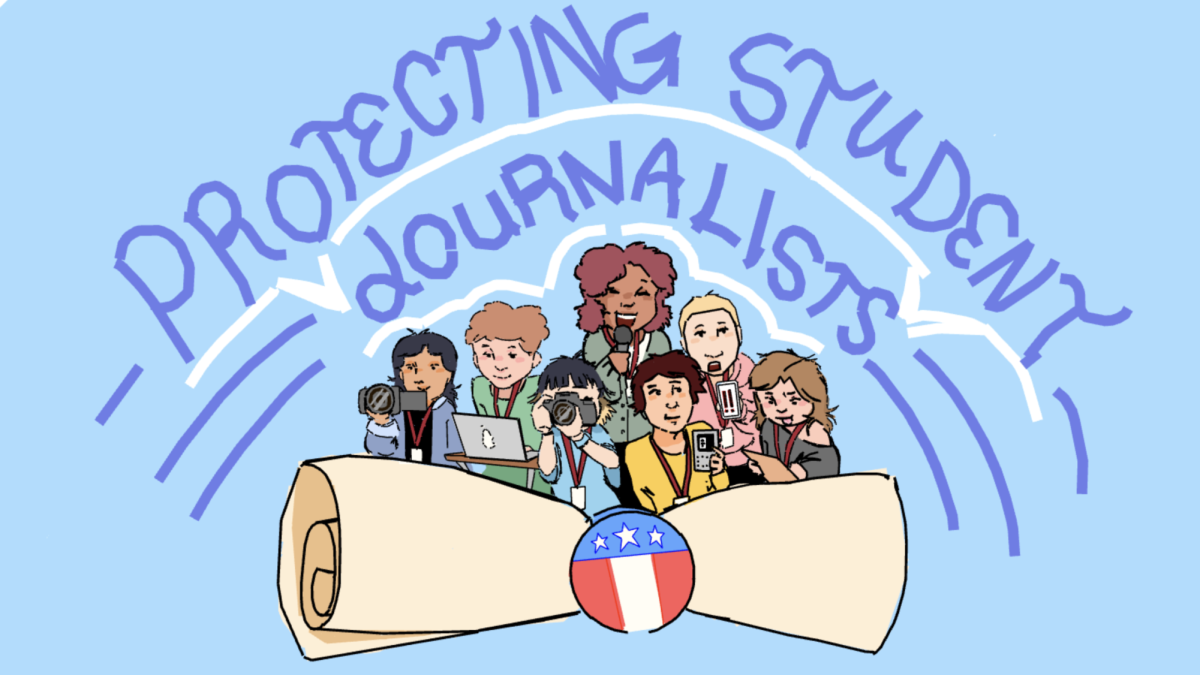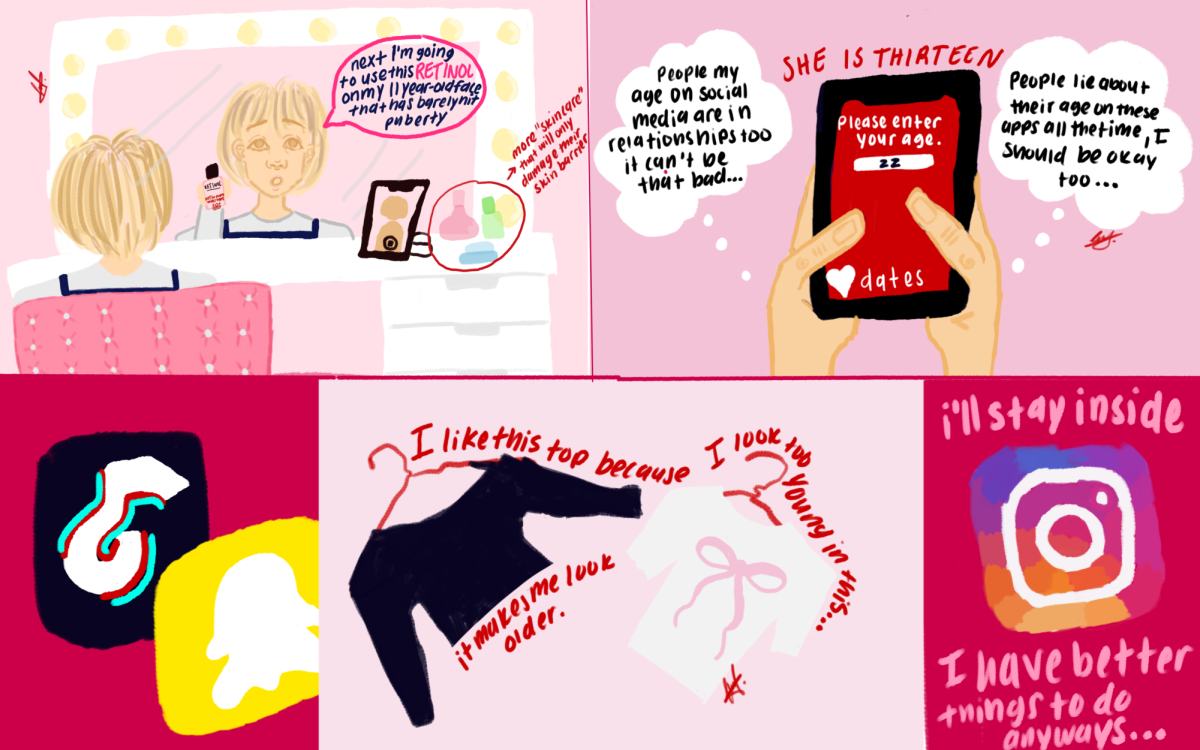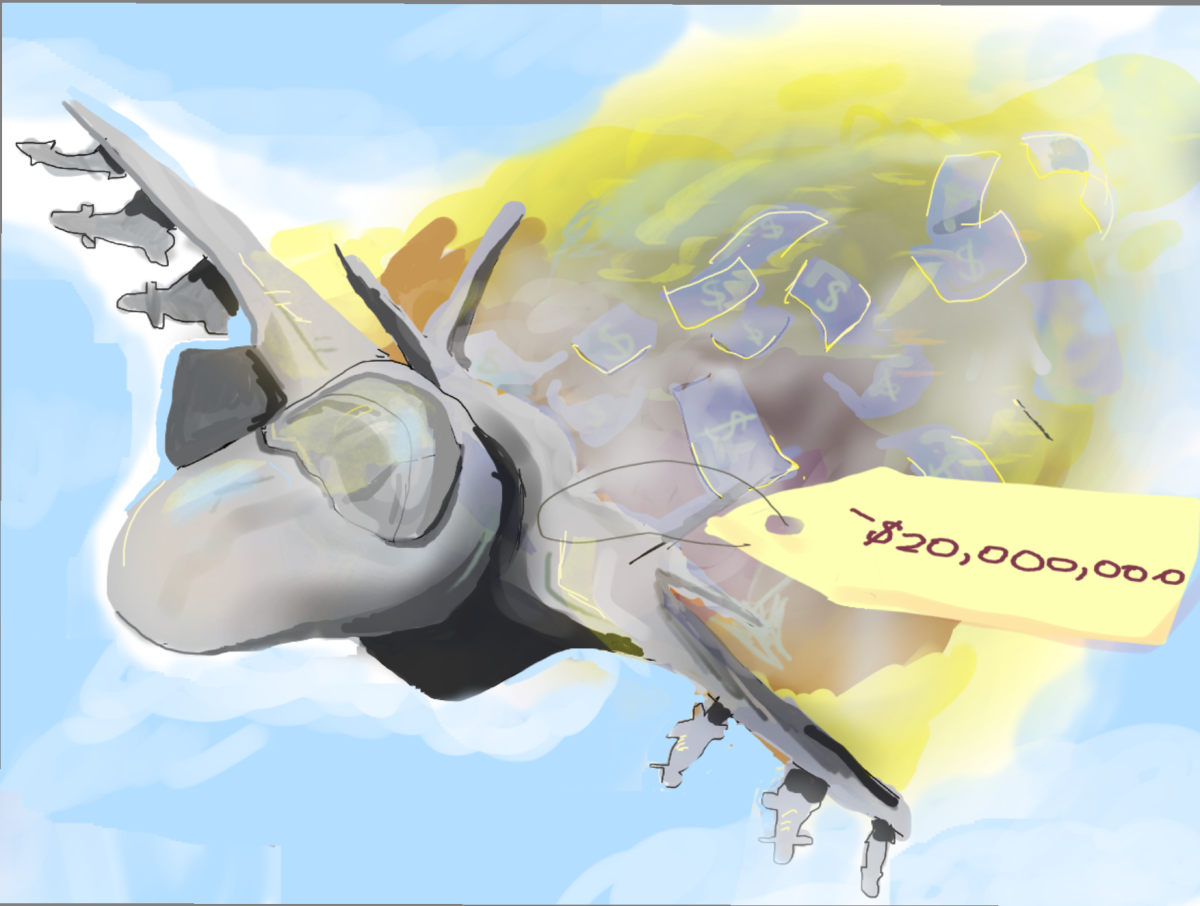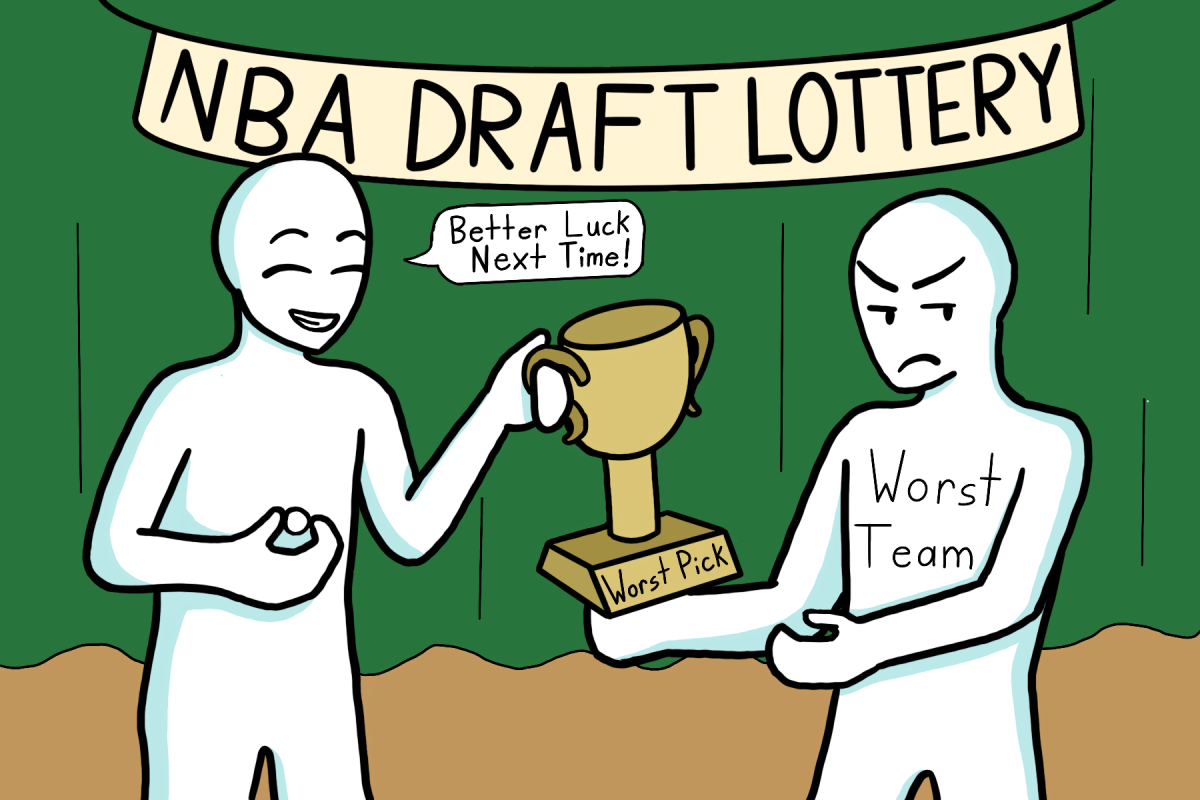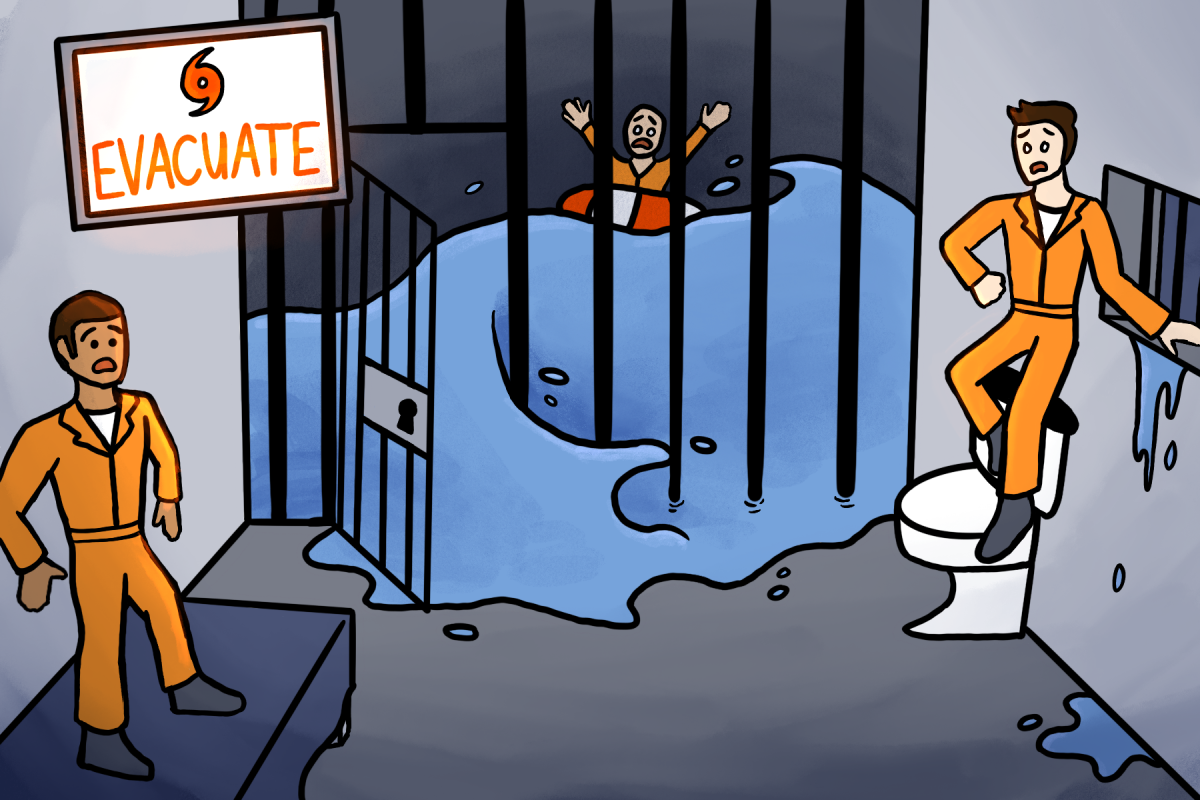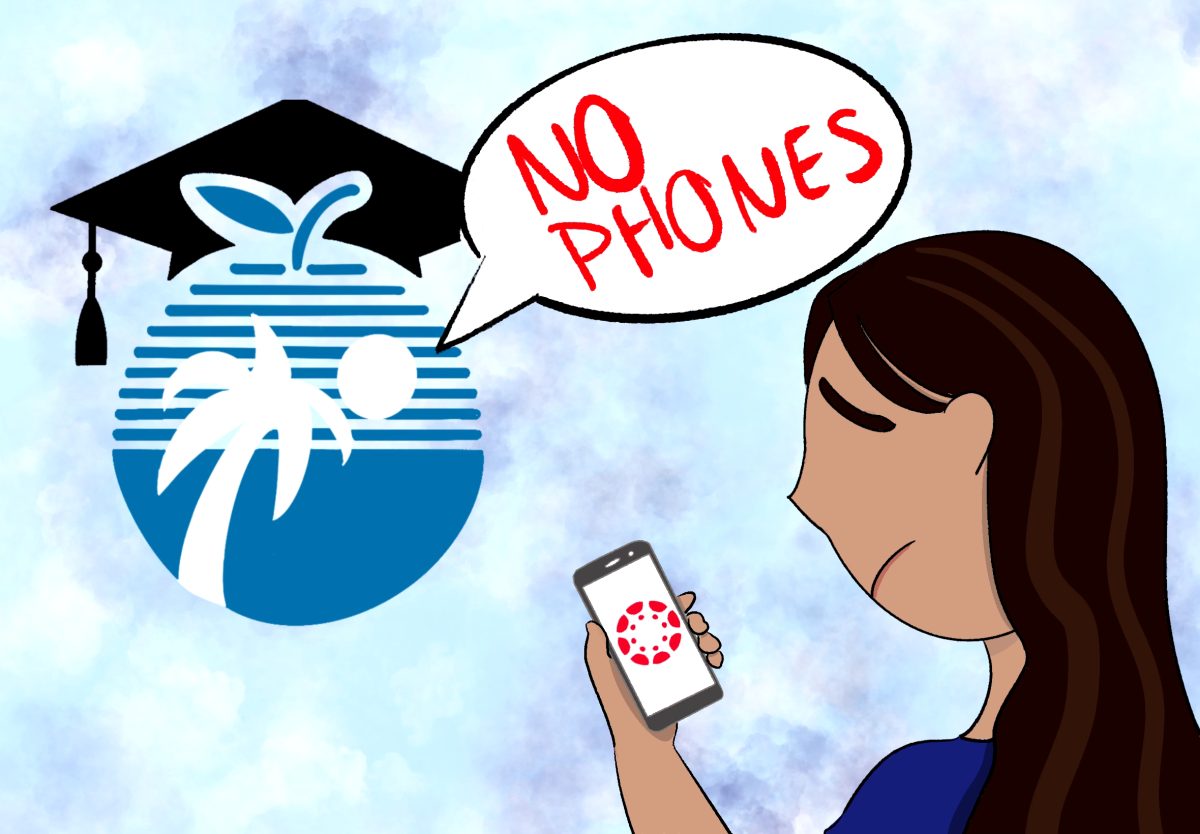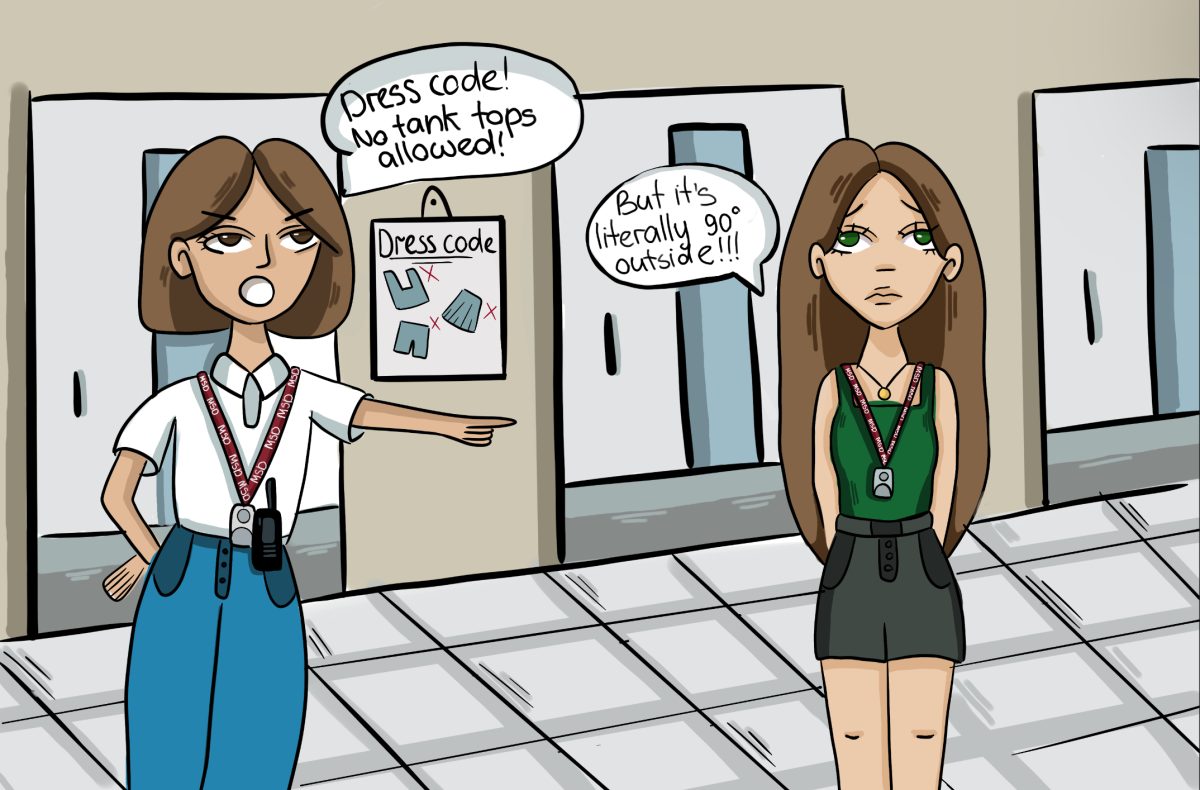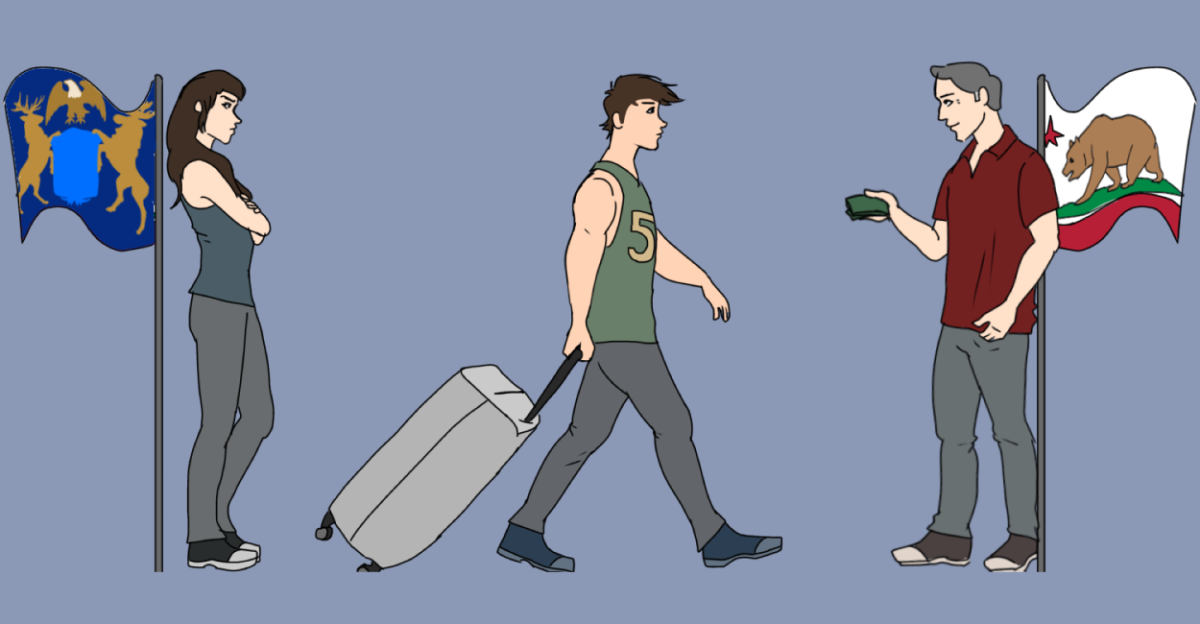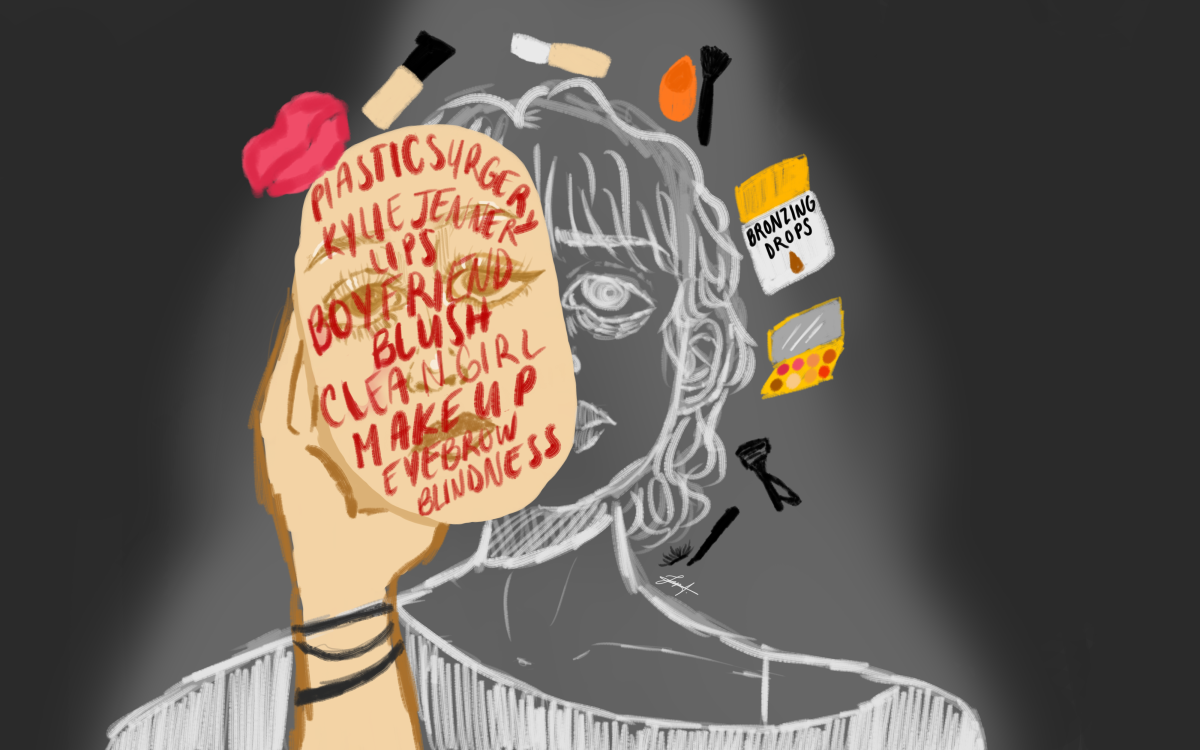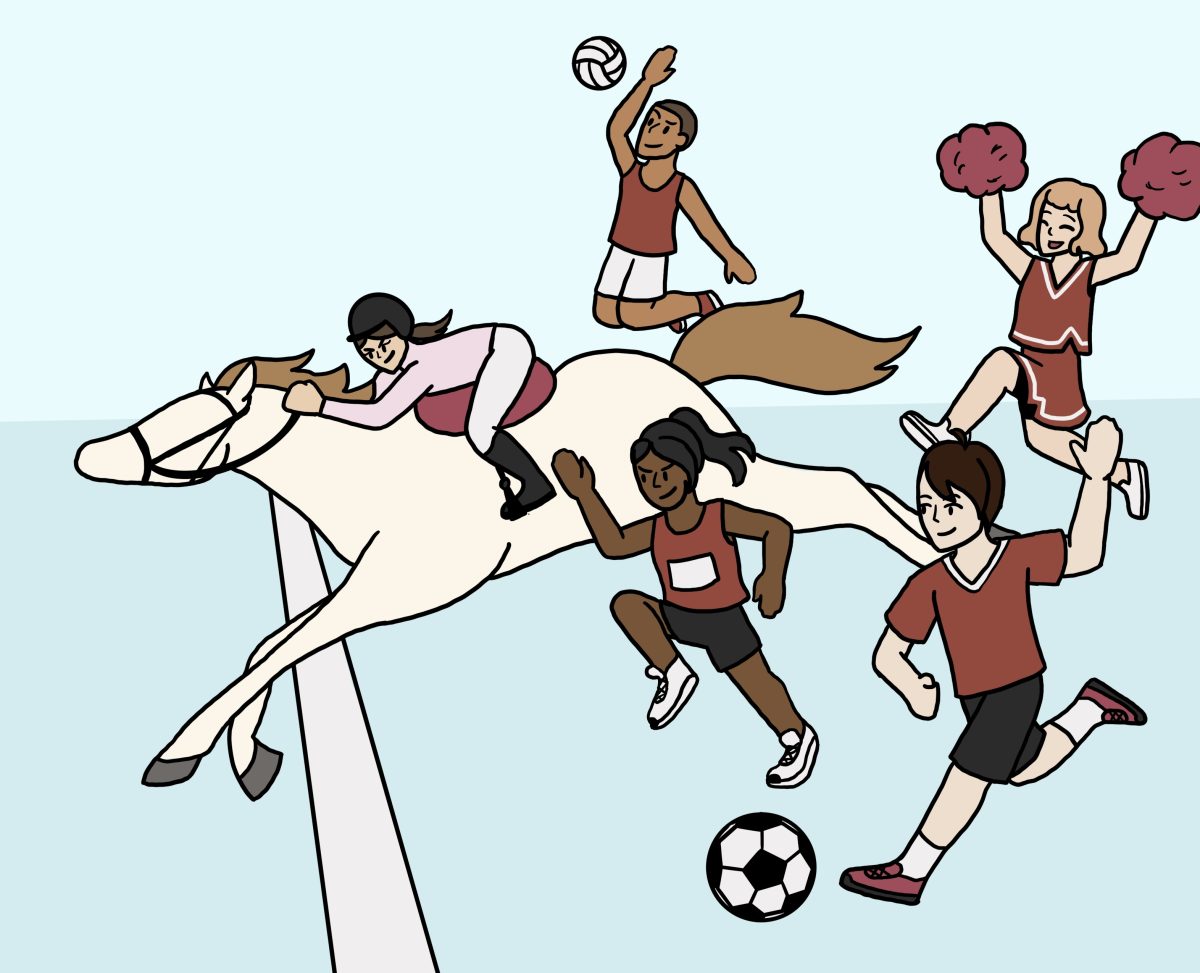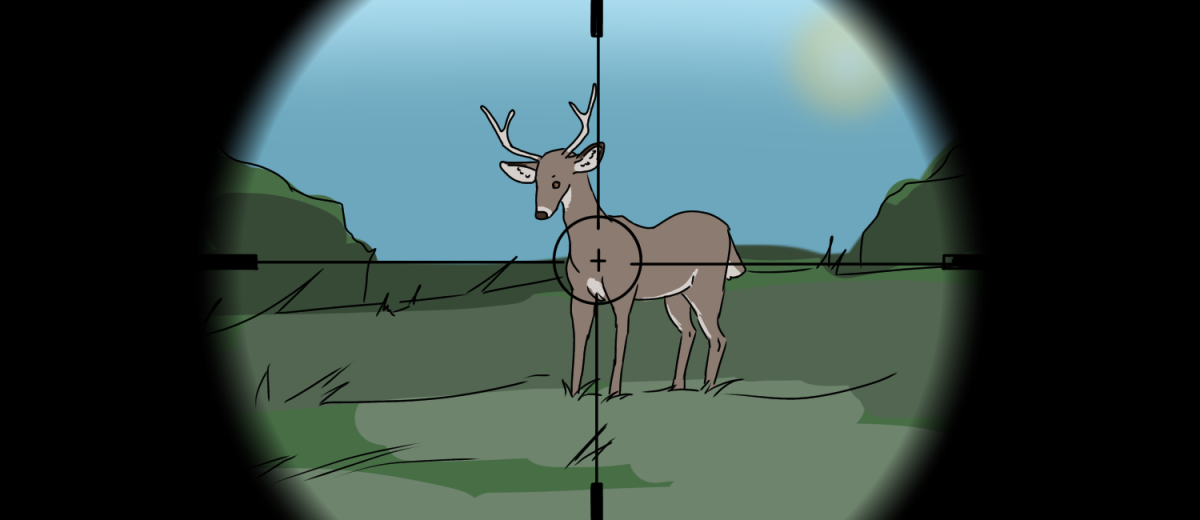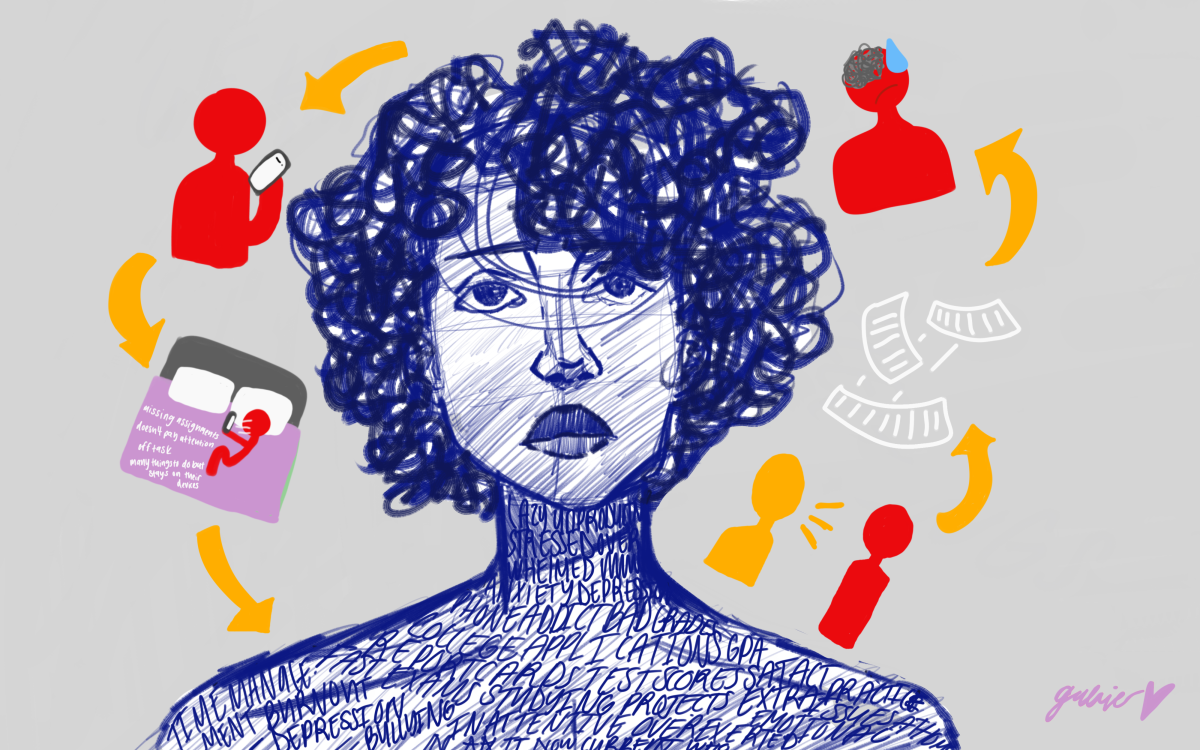People around the globe follow the latest trends, trying to keep up by replacing items like electronics, clothing and makeup. Society constantly pressures people into fitting new “norms,” which ultimately leads to overconsumption—the excessive use and purchase of goods and services. Society has created the desire for “more,” and has consequently, caused damage to humans’ mental health and the environment.
Humans have historically always wanted “more.” Ancestors of today’s humans have traveled far, expanding their territory and finding new foods. As people evolved, so did their desires. What used to be a desire for basic needs, like food, water, shelter and survival, has become a desire for clothing, makeup, technology and unnecessary services.
According to neuroscientist David Priede’s May 2023 Medium article on human desire, humans naturally tend to compare themselves to others, further fueling their desire to have the same items.
For example, using large, colored water bottles called Stanley tumblers has recently become popular. Some people own multiple insulated cups, even though they are reusable. The influence of other people owning the tumblers creates a never-ending cycle.
A video on TikTok helped spark the craze for the cups, showing how the cup went undamaged in a car fire. This caused an influx of consumers to buy the bottle and Stanley sales soared by 215% in its best-selling category, according to a November 2023 article published by Retail Dive. As the demand for the cups grew, people began to resort to different and extreme methods to own one, often robbing stores and camping overnight in front of them to attain one.
When Stanley collaborated with Starbucks, people flocked to the stores, desperate for the bottles. People camped overnight to be the first to get to the cups. The chaos-filled event consisted of people shoving and hurting each other to get an easily replaceable water bottle.
The craze was filmed all over social media platforms and the cups eventually went on to sell for extreme prices on shops like eBay. The desire for these cups is a clear case of overconsumption and how a person’s thirst to fit in with trends can lead them to act absurdly.
People engage in overconsumption because they believe purchasing more makes them happier; however, it is detrimental to people’s mental health. According to a May 2017 article on Greenpeace’s website, overconsumption causes people to behave in ways similar to addiction.
Unfortunately, even after people have purchased the things they desired, most find that they are still unsatisfied, so they buy more. This creates feelings of regret and uneasiness, which can lead to anxiety and depression. Social media makes this addiction worse by constantly promoting products to people.
Overconsumption also has had adverse effects on the environment: it deprives the earth of its natural resources, destroys ecosystems and ruins natural habitats. A November 2021 episode of National Public Radio’s “All Things Considered” reported that overconsumption is the main cause of environmental problems around the world today.
Pollution is caused by the manufacturing of items and the release of greenhouse gases, which in turn can affect global warming. Factories in the U.S. produced 23-25% of greenhouse gas emissions in 2023, according to the U.S. Environmental Protection Agency. These emissions will only grow in severity if no actions are taken now to end overconsumption.
An October 2022 article published by Population Media Center reported that increasing populations around the world partly causes overconsumption. Large populations need more to survive, which takes an immense toll on the environment. By adding the daily wants of society into the mix, the environment becomes even more damaged.
Shopping for sustainable products is a great way to ensure that the product will be long-lasting. Simply, spending less also reduces the threat of overconsumption and boosts mental health. Reusing, reducing and recycling is another method that allows for everyone to lend a hand in improving the environment.
Reducing overconsumption is imperative to the protection of the environment and society as a whole. People need to stop focusing on achieving the latest fads and instead on using sustainable, reusable items that are not easily replaceable. It can be challenging to change habits that have been active for years, but reusing, reducing and recycling is the only way to lessen the damage that consumerism has caused.
This story was originally published in the March 2023 Eagle Eye print edition.

